Minds On
The impact of oil
Examine the following images and descriptions of a feather and a feather dipped in oil.
Consider the following questions:
- What happened to the feather after it was dipped in oil?
- How is the feather different? Is it dry? Wet? Heavy?
- How might the oil affect a bird’s feathers?
Record your ideas digitally, orally, or on paper. If possible, share your ideas with a partner.

A feather

A feather dipped in oil
Action
What is oil?
Oil is an important part of daily life both in Canada and around the world! Explore some of the ways we use oil in the following carousel!
Oil has many uses, but when oil accidentally spills into water, it can cause big problems.
How do oil spills affect plants and animals?
When oil spills into water, it can be difficult to remove. Oil and water are both liquids.
Because oil is a liquid, when oil spills into water it:
- takes up space
- flows and moves
- takes the shape of the container it’s in (in this case, bodies of water such as rivers, lakes, and the ocean)
Oil is a liquid that floats on the surface of the water.
When it spills, it spreads out and is pushed by wind and water currents. If oil waste reaches the shoreline or coast, it can affect the beach sand, rocks, plants, and homes of animals, including humans.
It’s also very sticky!
Let’s return to the feather example in the Minds On.

A feather

A feather dipped in oil
Oil is very hard to remove because it coats everything that it comes in contact with, including the feathers of birds and the fur of animals. When cooking with oil, sometimes it stains clothing and is difficult to remove with just water.
Oil makes it hard for feathers and fur to work the way they are supposed to. For example, oil can coat a bird’s feathers and wings. This makes it hard for the bird to fly and stay warm.
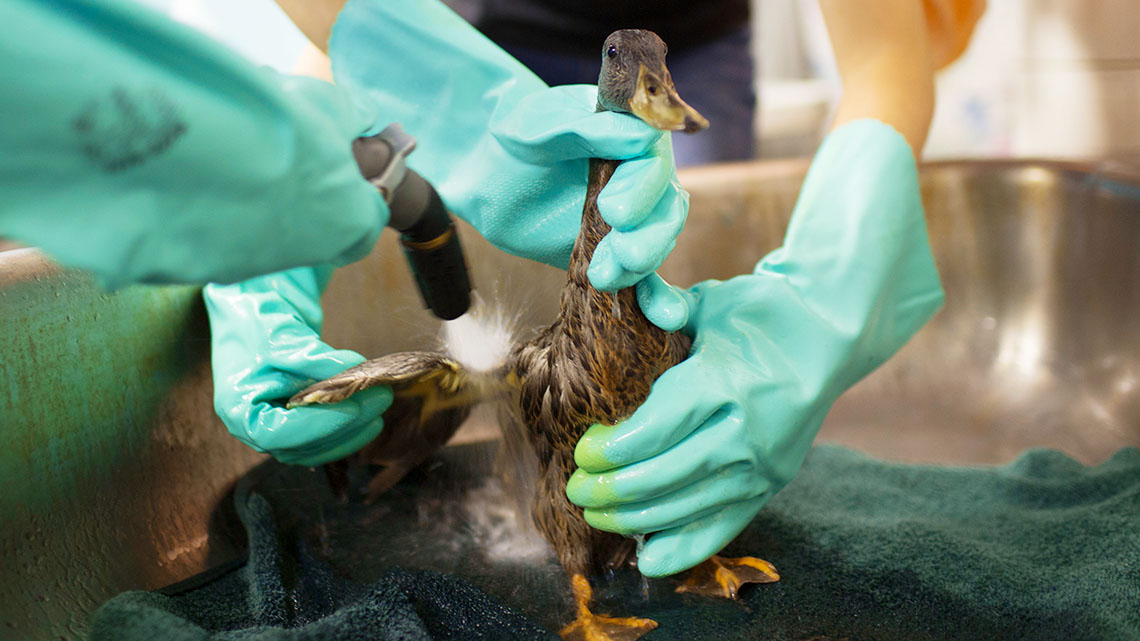
Cleaning animals is often an important part of responding to oil spills
Why do oil spills happen?
Oil spills can happen by accident anywhere oil is used, drilled, or moved.
For example, an oil spill can happen in the ocean when a large boat carrying big containers of oil has oil leak out of the containers.
The following is an image oil spill that happened because of an accident at an offshore oil drilling project.
Press ‘Offshore Oil Drilling’ to check out its definition.
Offshore drilling is the process of collecting oil beneath the Earth’s oceans instead of on land.
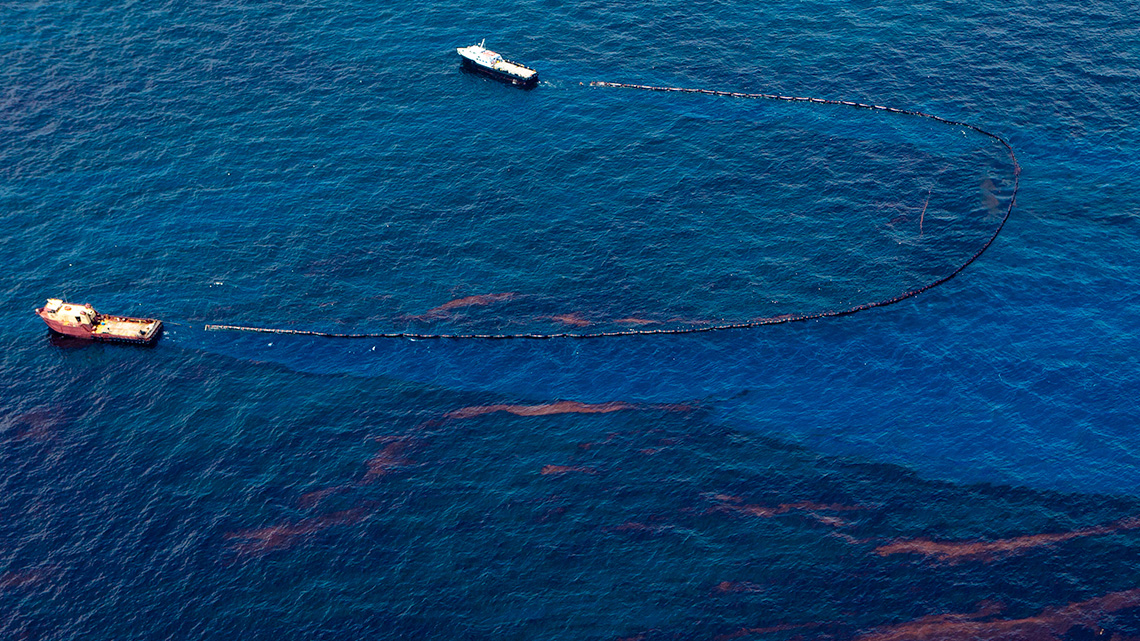
Two small boats pull a large net across the surface of the water to skim oil off the top after the Deepwater Horizon Oil Spill in the Gulf of Mexico.
Oil spills can also happen in our rivers, lakes, and other freshwater sources.
In the same way that trash gets swept into storm drains, oil from cars, lawnmowers or tractors, and household chemicals will also often make it into waterways.
Examine the following animation of underground pipes that carry stormwater (rain water) to lakes, ponds, rivers, and streams.
Now, imagine a car leaking oil into a storm drain.
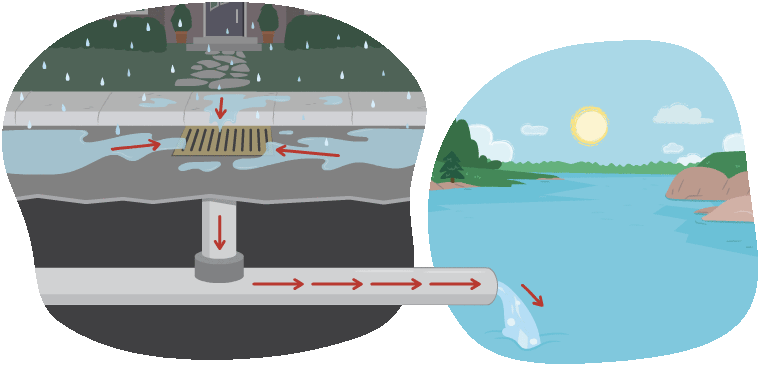
What happens when oil is mixed with storm water?
Consider the following questions. Record your ideas in your notebook, an audio recording, or another method of your choice.
How do you think that plants and animals living in this water are affected by the oil spill?
Press ‘Possible Answer’ to access some ideas.
When there is an oil spill in water, the oil covers the surface of the water. This means that plants cannot get the sunlight they need to make their food. Animals like birds can get oil in their feathers, which makes it very hard for birds to fly.
How do we keep oil out of our waterways? What can we do?
Press ‘Possible Answer’ to check out some answers.
To keep oil out of our waterways, people can:
- put household waste or garbage where it belongs
- safely store oil in a container that can close tightly
- contact a waste disposal centre to learn more about oil disposal
Connecting to the world
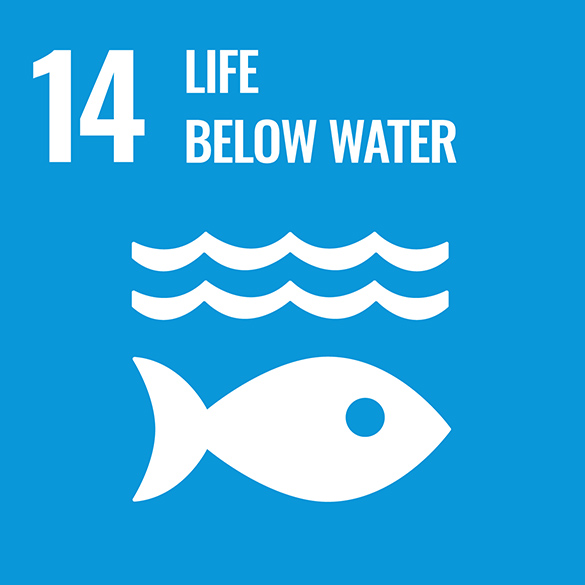
The United Nations (UN) is a group of many countries from around the world that have come together to create a better future for people and the environment. They have created 17 goals called the Sustainable Development Goals.
This learning activity is connected to Goal #14 which is called Life Below Water. This means everyone should help protect our oceans and seas.
Following UN Goal 14, it is important to protect the ecosystems in the water, such as plants, fish, turtles, birds, and much more, by keeping the water clean and free from oil that can hurt them.
There are many actions humans can make to help prevent oil ending up in water. One way to keep oil from entering the waterways is store it and dispose of it safely!
Let’s explore how to store and dispose of cooking oil.
Check your understanding
Use the following true or false questions to check your understanding about oil and oil spills so far.
Select the correct answer, then press ‘Check Answer’ to check how you did.
Did You Know?
Messy cleanup
How are oil spills cleaned up?
It depends on the type of oil spill, but scientists use different cleaning methods.
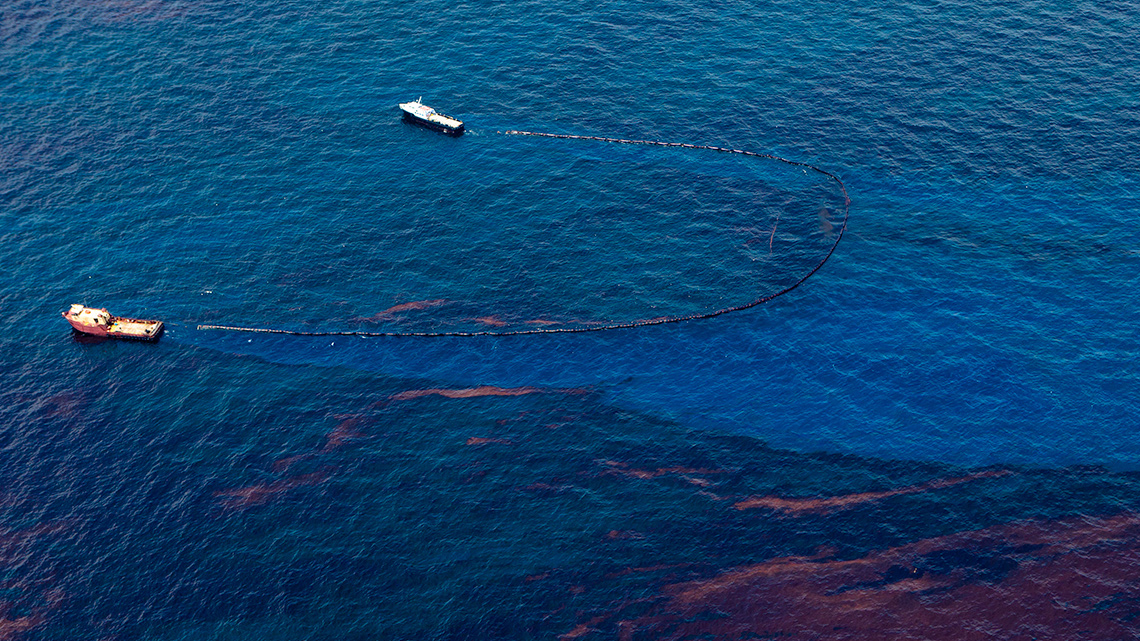
Boats skimming oil
For example, sometimes oil is skimmed. Skimming is when a net is dragged on the top of the water to collect floating oil.
Skimming helps remove oil from the surface of the water before it reaches the shoreline.
Sometimes, two boats will tow a boom which collects the oil and then it is picking up by a “skimmer.” The oil is then collected in the tank of a boat.
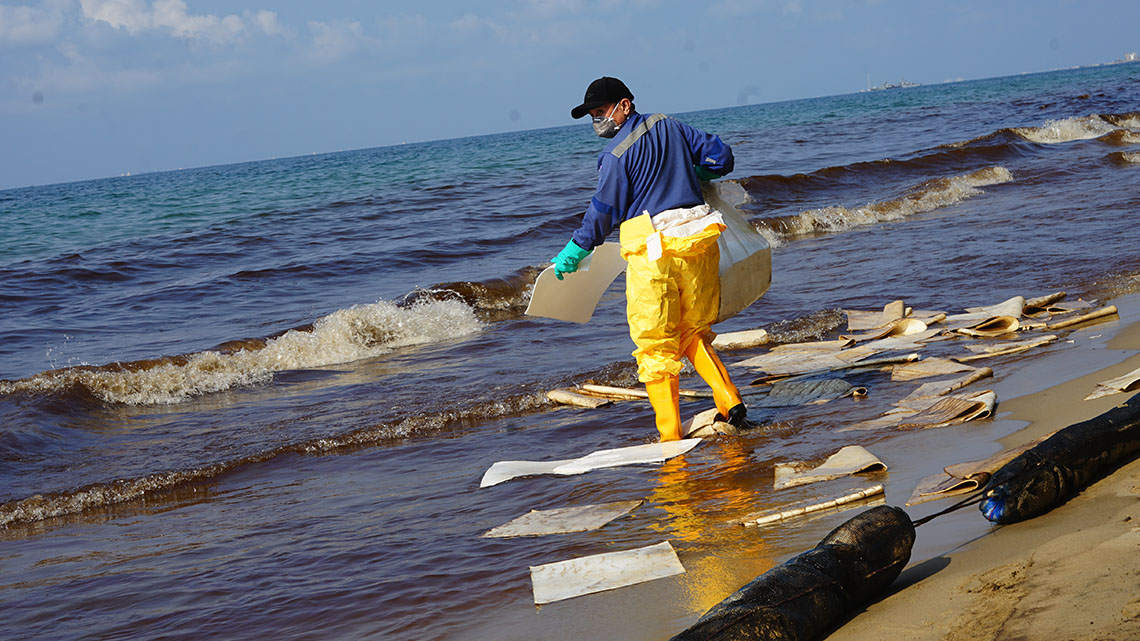
Oil can be soaked up with pads.
Materials such as pads can also be used to soak up or absorb oil.
The pads in the previous image are being used to soak up the oil at a shoreline in Thailand.
Consolidation
In the community
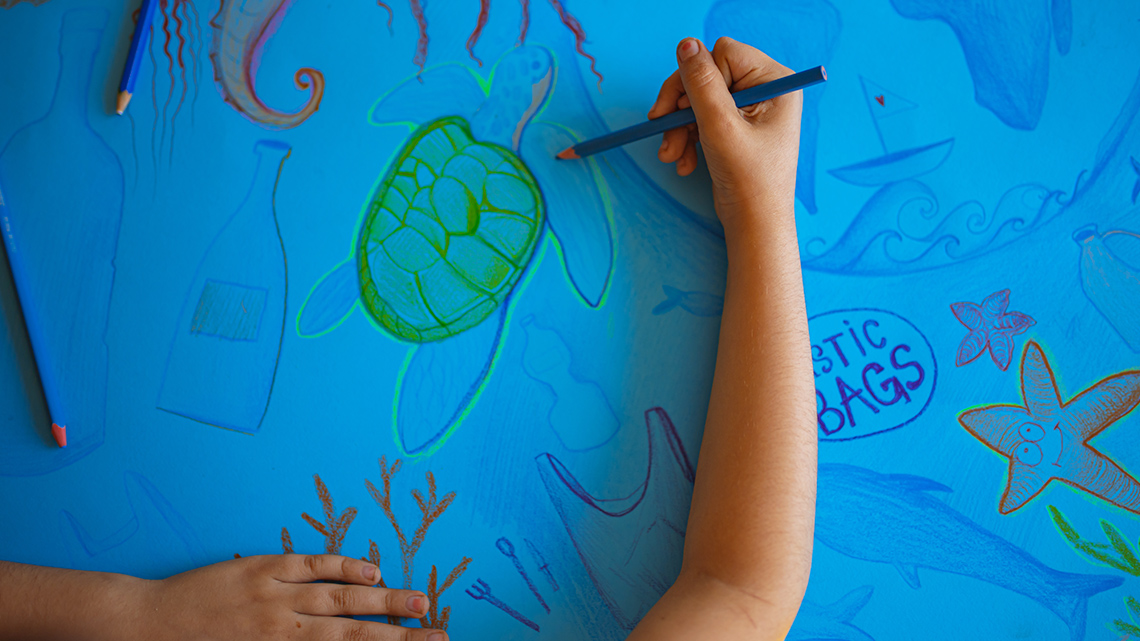
In this Learning Activity, you have learned about how oil gets into our waterways, how oil spills affect the environment, and how to safely store and dispose of oil.
Now it’s time to share your learning!
Your task is to create a message about the dangers of oil spills and what people can do to keep oil out of our waterways. You may choose to:
- write a letter to your local newspaper about the dangers of oil in waterways and how community members can be helpful
- create a poster about the dangers of oil in waterways and how community members can help
- create a ‘How To’ guide for how to safely store and disposal of oil
Record your message orally, digitally, or on paper. If possible, share it with a partner.
Reflection
How do you feel about what you have learned in this activity? Which of the next four sentences best matches how you are feeling about your learning? Press the button that is beside this sentence.
I feel…
Now, record your ideas about your feelings using a voice recorder, speech-to-text, or writing tool.







